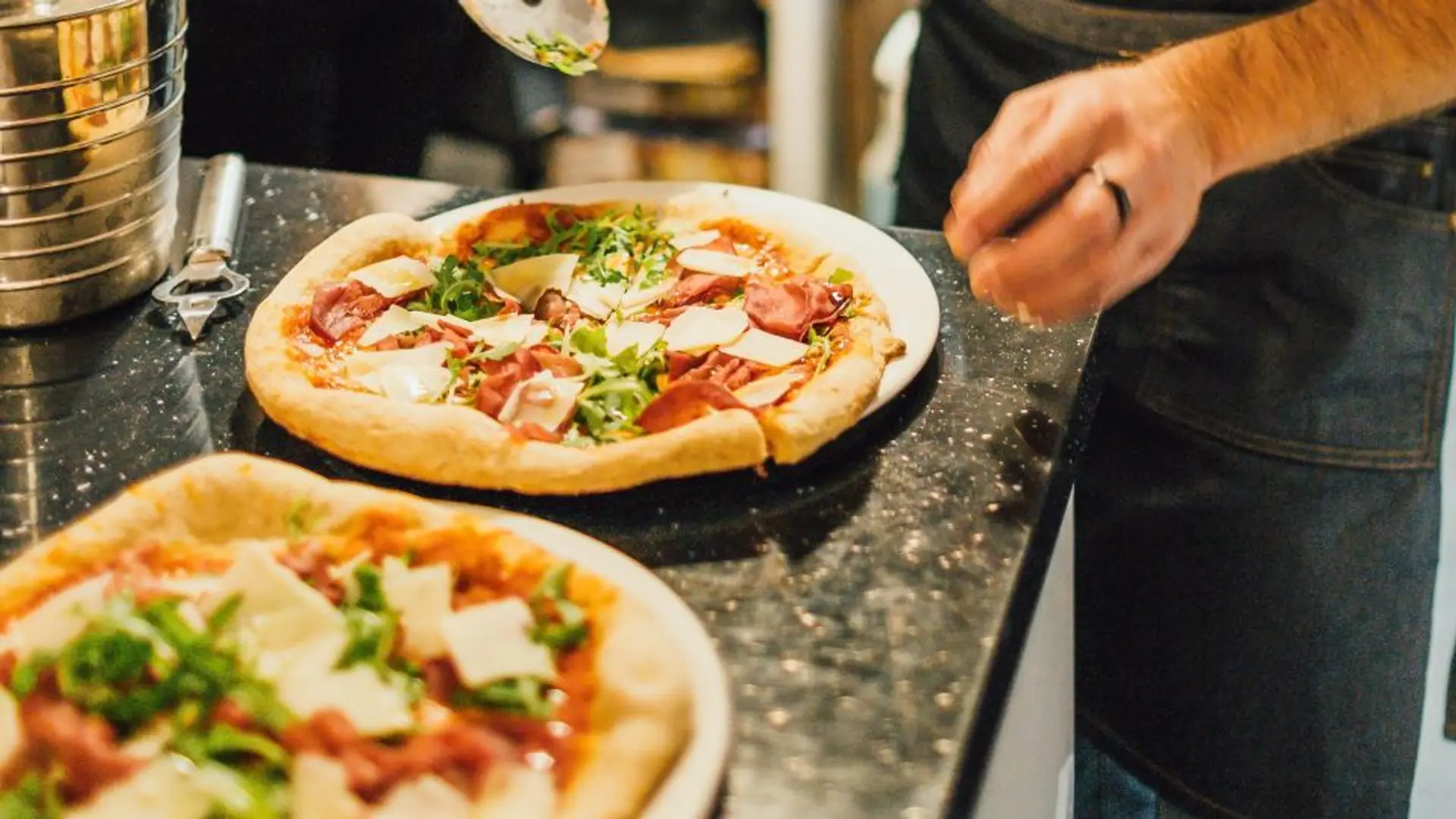4 Popular Pizza Myths, Plus the Harsh Truth
Updated:

Junk on social media can litter our everyday conversations with all kinds of beliefs. And even when it comes to Pizza, you’ll hear all sorts of facts and fibs. And when a lie continually told it could become hard to differentiate it from the facts. Sometimes we grow up believing some beliefs are correct – only to learn later in life they are myths or naked lies.
The same can be said about many facts about pizza, a special meal for many people.
Let’s talk about some popular misconceptions about pizza you’ve probably heard out there.
Pizza is entirely an Italian dish
Pizza has a rich, tremendous history. While it is true that pizza, as we know it today, originated from Naples, the idea of pizza dates to many ancient cultures. Many cultures have been consuming flatbreads topped with different toppings throughout history, way before the Naples days.
In ancient Greek, natives used herbs, cheese, and oils to dress their bread. It wasn’t only Greeks, but the practice was widespread across other cultures like Romans, Egyptians, Babylonians, and Israelis.
Pizza topped with tomatoes became common towards the late eighteenth century. With tomatoes as part of the craft, Neapolitans perfected the modern-day pizza.
How they toasted the pizza crust, prepared the pizza sauce, and even the special toppings they used – it was all unique and artistic, to render their dish that flavoursome taste.
Pizza has always been a favourite dish
People from all cultures enjoy pizza. It is no longer a dish that pleases a few people due to being privileged or lacking. But, before it could ever get to this level, back in the classical Neapolitan era, pizza was a staple food for the poor. For the middle class, and mostly the poor, it was a typical dish in their daily servings.
It became a favourite meal because it was affordable, and it was easily assimilated into the body. Selling flatted crusts topped with raw tomatoes became a thing in Naples streets.
But not everyone was fond of pizza. As for the wealthy class, most were too proud to have a taste of this unique pie. Non-Neapolitans had a low opinion of this dish. Some people would call it ‘Sewer bread’ and those visiting Naples would call it ‘loathsome’.
Before Neapolitans brought their culinary skills to the playground, other cultures would have their pie-dressed pizza. But this pizza wasn’t as tasty as the pizza that would spring from Naples.
Pizza became a favourite dish to many after she testified how yummy and palatable it was. Also, the establishment of pizzeria bases and the growth of pizza franchise joints after WW2 contributed a lot to the spread of its glory.
Pizza is junk food
Like it says above, pizza was once a staple food for the struggling Neapolitans back in the eighteenth century. It became the main dish in every serving because it was affordable, palatable, and available. Even soldiers based in Italy grew to love the classic Neapolitan pizza.
Looking at its roots, the pizza served then had nutrient-rich ingredients. It’s evident the poor in Naples survived on this toasted crust, topped bread.
Today’s pizza is indeed packed with junk foods that slow our body’s metabolism. Times have changed; it’s mostly about the money. Food specialists are no longer concerned with following the traditional culinary procedure. That said, not all pizza is junk pizza.
Pizza can be versatile, and some varieties are free from processed additives. Some creative chefs prepare their delicacy using natural, toxin-free ingredients.
Pizza makes you fat
We can debate on this one – as I’m not a certified nutritionist. Spiritualists like to say, “You are what you eat.” I’ll make a caveat by supporting the correctness of that statement. From a revolutionary point, man’s digestive tract is designed to assimilate foods like fresh fruits and vegetables. Also, we can include raw, organic, and wholesome foods.
What we put in our bodies affects our metabolism. Unnatural ingredients are poisonous to our system because they introduce toxins into the bodies. These toxins slow down the body’s metabolism rate.
If your pizza has unnatural and unhealthy ingredients, the toxins released in your body once ingested will affect your metabolism.It is not about eating excess carbohydrates or fewer fats and calories, like with most health concerns. It’s about feeding our body with artificial and unhealthy ingredients.
We are talking about sweeteners, modified food starch, and other artificial additives. If your pizza is loaded with artificial ingredients, it will affect your system. In that case, you can add weight.
Also, far from eating excess carbohydrates or the debate on whether eating grains is healthy, there are more problematic concerns. One real problem about adding weight is a slowed metabolism due to toxin build-up. Overeating is another major concern.
If you are eating a junk-free pizza on a regular – let’s say once in a week or even twice in a month – pizza won’t actually make you fat. Mostly, try not to eat junk pizza. Buy authentic Italian pizza from a pizzeria or switch to a more wholesome, home-baked pizza.
Also, the key to keeping your weight in check is regular exercise and occasional fasting sessions. If you are health conscious about your eating habits, you can keep your weight in check.
Final Word
So, there you have it. Enjoy your pizza but most importantly – know what’s in your pizza.
